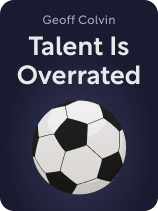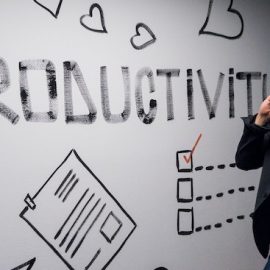

This article is an excerpt from the Shortform book guide to "Talent Is Overrated" by Geoff Colvin. Shortform has the world's best summaries and analyses of books you should be reading.
Like this article? Sign up for a free trial here.
How long does it take to become good at something? How much practice does it take?
It takes about ten years of intentional practice to become excellent at something, but you can become better at something right away. In fact, any amount of practice is beneficial.
Read for more on why practice can have such an immediate impact and how long you need to stick with something to become great.
When Does Practice Start Having an Effect?
Deliberate practice can improve your performance almost immediately, as any amount of practice increases your understanding and thus equips you to perform better. Therefore, people of every age and experience level should deliberately practice. Even if you don’t have time to become excellent, you can become better. So if you’re asking yourself, “How long does it take to become good at something?”, the answer depends on whether you’re looking to become an expert or simply looking to get better.
(Shortform note: In Mastery, George Leonard adds the caveat that, while your skills may start improving immediately with focused practice, improvement will be incremental and may not be noticeable. This can discourage people and make them quit. He suggests overcoming this discouragement by viewing practice as a lifestyle rather than a means to an end. Instead of progress being a step toward excellence, Leonard holds progress as the main goal. This more achievable goal could make sustained practice more appealing to people who are older or less experienced, who may struggle to make the time commitment needed to achieve excellence.)
If you want to achieve world-class excellence, however, deliberate practice requires a massive time commitment. On average, it takes 10 years of continual deliberate practice for a person to improve their understanding and skill enough to perform excellently. The inability or unwillingness to make this commitment is one of the reasons so few people achieve excellence.
It takes this long because even experts can only deliberately practice for four to five hours a day. Beginners can usually only manage an hour. You can’t increase your understanding and skills any faster because continually evaluating your performance is mentally taxing. After a few hours, you can’t maintain the focus needed to improve, so any further practice is ineffective.
(Shortform note: Ericsson observed people’s limited ability to focus in his studies on deliberate practice—though he defined the limit as two to four hours. Specifically, he says that deliberate practice becomes less effective after two hours, and there’s almost no benefit to practicing more than four hours. While you may not be able to exceed this limit, strive to meet it, so you’re taking full advantage of your focus instead of being limited to an hour. One way to extend your focus is to follow a set schedule, Cal Newport says in Deep Work. Once the schedule becomes habitual, you’ll focus automatically and won’t need to use as much willpower to overcome distraction.)
Even individuals who appear to have meteoric success follow this pattern. Mozart is an example: He composed his first excellent piece of music at a very young age compared to his peers. This makes people assume that he had an inherent talent that let him skip the practice his peers needed. However, Mozart started practicing composition when he was a toddler. It was almost 20 years of practice later that his performance was noticed.

———End of Preview———
Like what you just read? Read the rest of the world's best book summary and analysis of Geoff Colvin's "Talent Is Overrated" at Shortform.
Here's what you'll find in our full Talent Is Overrated summary:
- How some people can perform at a globally impressive level while the average person can't
- Why you need to shift your mindset from talent to training
- How to use the two approaches to deliberate practice successfully






